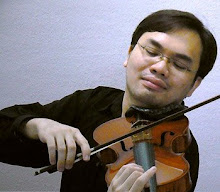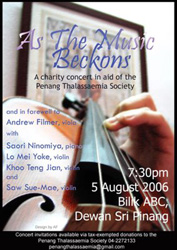Note: opinionated article ahead. Sail with caution.
Not too long ago I was having a conversation with a couple of African American friends, one of whom was adamant that Barack Obama may be fine in ideas – but just don’t call him black. This has of course been in the realm of the media for some time, with some considering that his mother is white, others saying that his childhood in Indonesia and his schooling in Ivy League institutions didn’t give him the same perspective as most blacks. I knew I was in dangerous ground – but then again, I didn’t have “white guilt” either, and so I ventured a query: Barack’s mother is a white American, and his father is from Africa, so doesn’t that by definition make him an African American? And if we trace back every black person in America, wouldn’t everyone – including everyone in that room on that day – end up coming from Africa?
There was a brief silence. Then another friend of mine spoke up.
“I dunno about the rest of you came from, but I’m from Oklahoma.”
Everyone cracked up.
History is a funny thing. We tend to place the idea of historical fact as cold, empirical, as symbolically as it is often literally carved into stone. We like the idea that there’s precedent we can trust, that somehow we derive the wisdom of the ages if we take time to understand The Art of War. But in most cases, the use of history ranges from an extension of passive-aggressive tendencies to downright wishful – and I daresay, fraudulent – thinking. The American far right reach for the Quran not to better understand why there is an increasing cultural gap between Muslims those who cling to a Judeo-Christian lineage, but to find ammunition for their already unchanging perceptions. The same has been done – by Radio Television Malaysia during my schooldays – in comparing that religious text with the Bible. Palestine and Israel are both selective about whose birthright the land extols, and there’s never a Judean around when you need one. Not too long ago, a certain Japanese textbook put forward a controversial interpretation of World War II, and revisionist historians now put into consideration the application of the atomic bomb not to end that same war, but to show the Russians that they had the capability and willingness to blow things up. The President of Iran doesn’t believe that the Holocaust existed, and the President of the United States probably doesn’t believe that dinosaurs existed.
And the fundamental issue that underpins racial relations in Malaysia is who got there first. Hindraf. The “political tsunami”. Open tenders instead of the NEP in Penang. And let’s not forget the political hotspots of Sabah and Sarawak, whose residents just might be a little less edgy [dare I say, jumpy?] if it weren’t for a little voice in the background that reminded them that they were very first Malaysians and what the heck are these Peninsula people doing mucking around here.
On one level I get it, but on another that doesn’t entirely make sense to me. My brain, those who know me will assure you, is an elevator stuck between two floors – if you want a consistent conversation with me, it’s best we take the stairs. The part that doesn’t quite jell is that the concept of the past doesn’t quite relate to my present the way it seems to for a great many others. Maybe it’s because my family genealogy has a little twist of humour to it. In the 1970s, someone decided to find out the details of our past, and we came across an impressive kilt design, a coat of arms and the account of the last pure-bred Caucasian Filmer, who apparently was wearing a pince-nez on the battlefield of World War I, dropped it (what a surprise), and was shot dead looking for it. The family member who commissioned and reported the results of the historical search ended off with the note: “Rather daft, no?”
It’s a nice story. It’s got the authenticity of a coat of arms that you could hang on a place that’s difficult to dust, cultural apparel, and an ending that a Tales of the Unexpected Roald Dahl would have approved. And while I like to occasionally reminisce about a Welsh castle that my family once owned and that I’ve never seen (it gets better every time I think about it – the last I checked, it had a moat and satellite TV), little about it affects my present life, outside of using English as a primary language and having a thing about Western classical music. And well, I own a little harp, which is as Welsh as I get. Even with that – I heard none too long ago that the real origin of the harp was Egypt.
In almost every aspect of my life, I have been Malaysian from birth. My perspectives, no matter how Western-leaning they can be, are rooted and in relation to a Malaysian fulcrum. [And if my vocabulary might seem to suggest otherwise, I’d like to mention that the Malay word for fulcrum is “fulkrum”]. Whether it be local or American politics, I just don’t get how one makes a determination about where a relative and selective history begins, and suddenly down the line we have a very contentious issue called affirmative action. I get that if a young student who is poor, he needs a bit of boost to play on a level playing field. What befuddles me is what difference it makes who his great-great-grandfather was, and if he lost his family fortune to the divide-and-conquer British. Does it make him any poorer than the kid next door whose great-great-grandfather lost his own fortune in the Boxer Revolution?
Put in another way – for a student, if you can’t start a test with an empty piece of paper and a working pencil, how fair is the test, and how well can you trust the results?
Let me put it this way. There was a joke during a debate about whether Bill Clinton, whose policies benefited the African-American community, was the first black president. To which Barack quipped somewhere along the lines of, “I’d have to check his dancing abilities before I can be sure that he is a brother.”
Somehow I think that that sounds fair. In respectfully disagreeing with some friends of mine, if we're wondering whether Barack is black, it matters more whether Barack can talk the talk and dance the dance, than whether his great-great-granddaddy did a rain dance on the plains of the Sahara. Whoever wrote the lines for Kungfu Panda had it just right: “Yesterday is history, tomorrow is a mystery, but today is a gift – that’s why they call it the present.”
They say those of us who don’t learn from our history are doomed to repeat it. I say, we have to learn what history is first, or we’re doomed to never have anything worth repeating to others. Some story that history would be.
Friday, June 27, 2008
Subscribe to:
Post Comments (Atom)






2 comments:
a good thing i think is that we see more of an upcoming generation making decisions based more on individuals rather than race, etc
yet of course bias does set in & the upcoming generation (being young 'uns) do get quite easily influenced
oh and i have a theory that dinosaurs actually grew wings & flew to outer space :P~
Thus your Facebook (fluff)friend no doubt, eh?
If race is by skin color, the Blue Man group is certainly having a ball.
Post a Comment